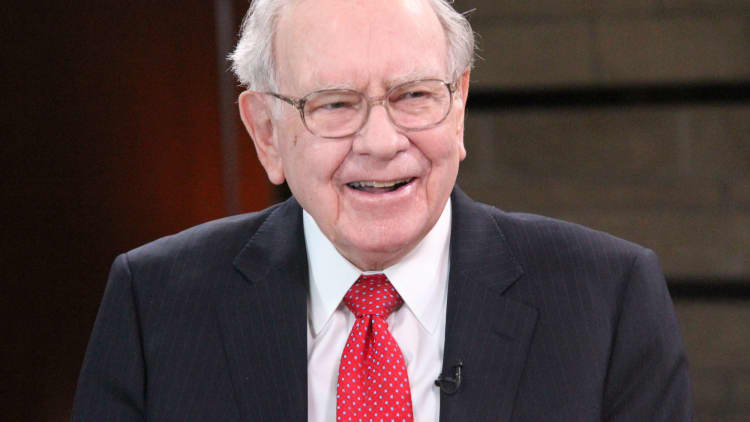Thanks to structural and personal reasons, many workers are falling short of adequately funding their retirement accounts, according to the authors of a new report, titled "Why Are 401(k) Balances Substantially Below Their Potential."
"A 25-year-old median earner in 1981 who contributed regularly would have about $364,000 by age 60 [under ideal conditions], but the typical 60-year-old in 2016 had less than $100,000," the authors write.
The paper looks at the potential reasons for the discrepancy, using data from the U.S. Census Bureau's Survey of Income and Program Participation and tax records.
One of the biggest factors is that the 401(k) system itself is still relatively new: Though workers growing up now learn about the importance of contributing from a young age, 401(k)s came into existence in 1978 and were never intended to be a primary source of retirement income. Workers in their 60s weren't always able to benefit from 401(k)s, especially in their earliest working years.
The second culprit of low savings, per the report, is the fact that not all workers have a 401(k) or IRA. And even for those that do, there are often gaps in coverage. In 2018, 35% of private sector workers over the age of 22 weren't offered a 401(k) plan at work, The Pew Charitable Trusts found.
From there, fees "significantly erode net returns on investments" over time, and some participants tap into their accounts before retirement to pay for other needs.
Here's how to prevent these four factors from hurting your retirement account balance.
Start saving for retirement early
The biggest factors contributing to smaller savings are the immaturity of the 401(k) system and inconsistent contributions. One of the best ways to have a healthy retirement account, then, is to start saving and investing as early as possible, and to do so consistently throughout your working years.
Workers who start investing in a 401(k) at 30, rather than earlier, would lose out on hundreds of thousands of dollars of potential savings, the report estimates.
Getting started early makes a difference because your savings and earnings will have more time to compound. If you started investing $250 a month at 25, you'd accumulate $878,570 by age 65, assuming an 8% average annual investment return. If you start at 35, you'll have just over $375,000.
Not all workers have access to a 401(k) plan at work, particularly younger ones. If that's the case for you, a traditional IRA or Roth IRA can help you save and build wealth.
Watch out for fees
Over a third of investors do not think they pay any investment fees, yet 95% actually do, according to a 2018 survey from TD Ameritrade. On average, investors pay 0.45% of total invested assets in fees, according to an analysis by TD Ameritrade provided to CNBC Make It.
That means if you have $103,700 invested in a 401(k), the average balance among Americans, you will pay about $467 a year in fees. The good news: Fees in general are on the decline, according to Morningstar.
Still, overpaying on fees can significantly reduce the total amount of an investor's assets, as those seemingly small percentages compound over time.
Though fees for 401(k)s can be outside of your control — they largely depend on the fund manager your company works with — there are some ways to limit them. The biggest ones to watch out for are the administrative fees your fund manager charges to hold your account and the expense ratios for the funds that you invest in, found in a fund's prospectus, or via a Google search.
To keep your fees as low as possible, look into low-cost mutual funds and ETFs, which are offered by companies like Vanguard and Fidelity and give investors exposure to diverse parts of the market while charging less than a tenth of a percentage point. Fund companies are even beginning to offer no-fee funds in a race to appeal to more clients.
You can also talk to your HR department about switching plan managers or adding more low-cost index funds to your investment options.
Don't touch your retirement savings early
The final reason for low savings, according to the report, is that workers might tap into their retirement accounts before they actually retire. This means not only are they using up their savings, but they are likely being hit with fees and early withdrawal penalties, as well as missing out on the compounding returns those savings would have earned.
The best way to ensure you're not using your retirement savings early is to make sure you have three to six months' worth of cash stashed in an easily accessible account, such as a high-yield savings account, that you can dip into when unexpected emergencies arise.
To get there, financial planners advise workers to take it one step at a time: Prioritize contributing to a 401(k) up to the employer match, then work on building an emergency fund, suggests Ryan J. Marshall, a New Jersey-based CFP. After the emergency fund is solid, increase retirement savings to the extent that you are able.
And whatever you do, try not to touch your retirement savings until you retire.
Don't miss: Here's what the average American typically pays in 401(k) fees
Like this story? Subscribe to CNBC Make It on YouTube!



